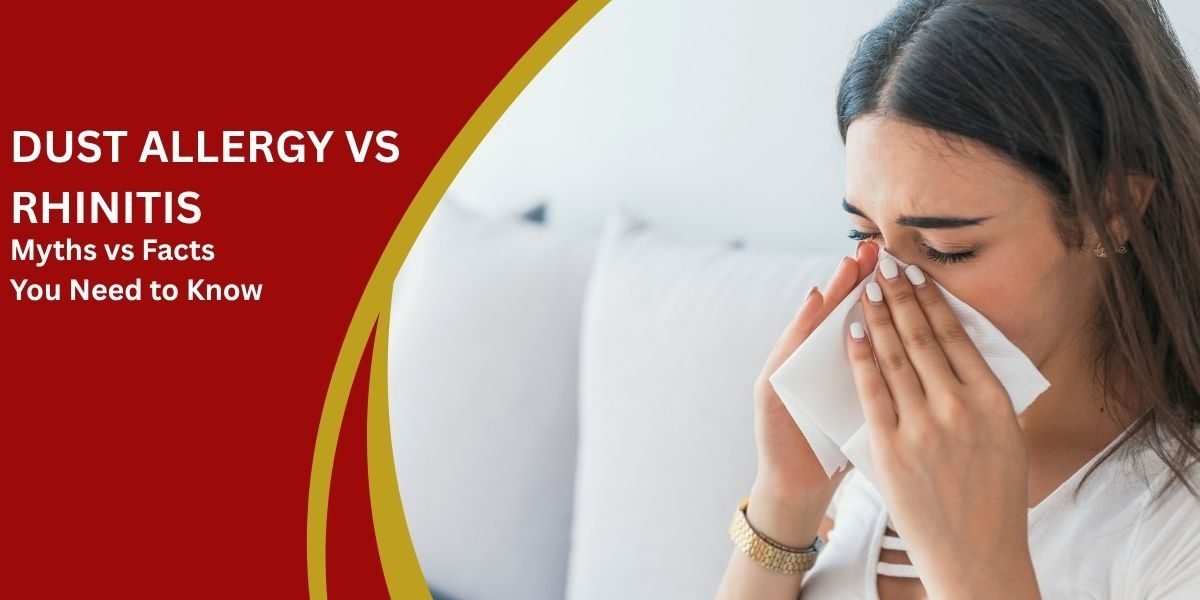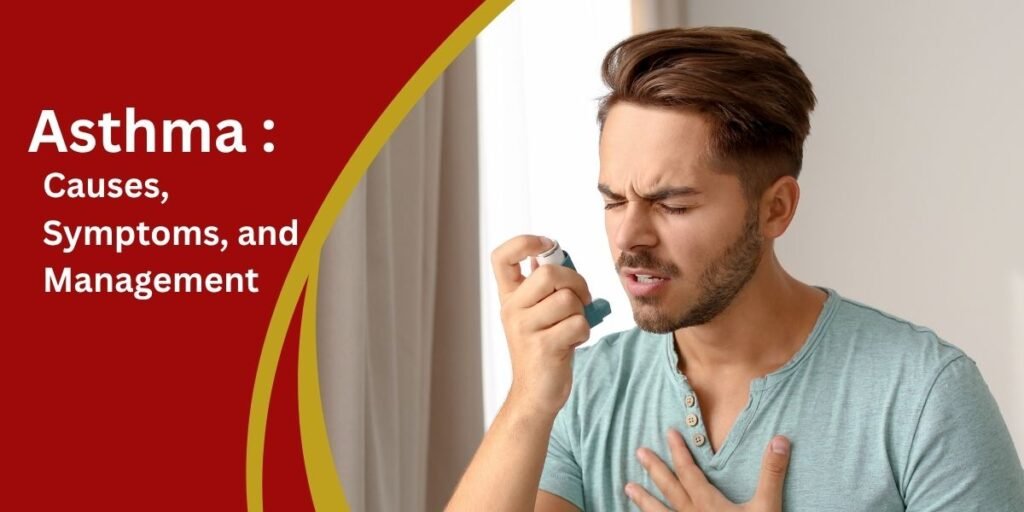
Many patients confuse dust allergy with rhinitis, especially when symptoms like sneezing, nasal congestion, or a runny nose persist. Although these conditions seem similar, understanding the differences between allergic rhinitis and non-allergic rhinitis is essential for accurate treatment.
At Dr. Lakhe’s Health Care Centre, we frequently address these concerns. Here’s a breakdown of common myths and facts to help you better understand your symptoms.
❌ Myths vs ✅ Facts
MYTH 1: All rhinitis is caused by dust allergy.
✅ FACT:
Not always. Rhinitis refers to inflammation of the nasal lining.
It can be:
- Allergic Rhinitis: Triggered by allergens like dust mites, pollen, pet dander
- Non-Allergic Rhinitis: Caused by strong odors, weather changes, infections, or medications.
Both types have similar symptoms but different causes and treatments
MYTH 2: Dust allergy is just a seasonal issue.
✅ FACT:
Dust mites are a year-round indoor allergen, not limited to seasons.
People with dust allergy often suffer from:
- Morning sneezing
- Nasal congestion
- Postnasal drip
- Itchy eyes or throat
Unlike pollen allergies, dust allergy flares up in closed or dusty spaces.
MYTH 3: Rhinitis is contagious.
✅ FACT:
Only infectious rhinitis (such as from a cold or flu) is contagious.
Allergic rhinitis is not contagious—it’s an immune response to allergens.
MYTH 4: All nasal sprays work the same.
✅ FACT:
Different sprays are used for different types of rhinitis:
- Steroid nasal sprays: Reduce inflammation in allergic rhinitis
- Antihistamine sprays: Block allergic response
- Decongestant sprays: Used short-term for temporary relief
Overusing decongestants can worsen symptoms (rebound congestion).
MYTH 5: Rhinitis will go away on its own.
✅ FACT:
Chronic rhinitis can persist without proper diagnosis and treatment.
Untreated allergic rhinitis can lead to:
- Sinusitis
- Sleep issues
- Poor quality of life
Consulting a specialist can prevent complications and tailor treatment.
When to Visit a Doctor?
You should consult a specialist if you experience:
- Persistent sneezing or runny nose
- Nasal congestion that doesn’t improve
- Loss of smell or sleep disturbance
- Symptoms worsening with dust or seasonal changes
👉 At Dr. Lakhe’s Health Care Centre, our expert team in respiratory care provides accurate diagnosis and personalized treatment plans.
✅Final Takeaway: Dust Allergy Isn’t Always Rhinitis
While dust allergy often causes allergic rhinitis, not all rhinitis is caused by dust.
Understanding the root cause—allergic or non-allergic—is the key to long-term relief.
Rely on expert care to manage your symptoms effectively.
📍 Visit Dr. Lakhe’s Health Care Centre for evaluation, allergy testing, and evidencebased treatment.


